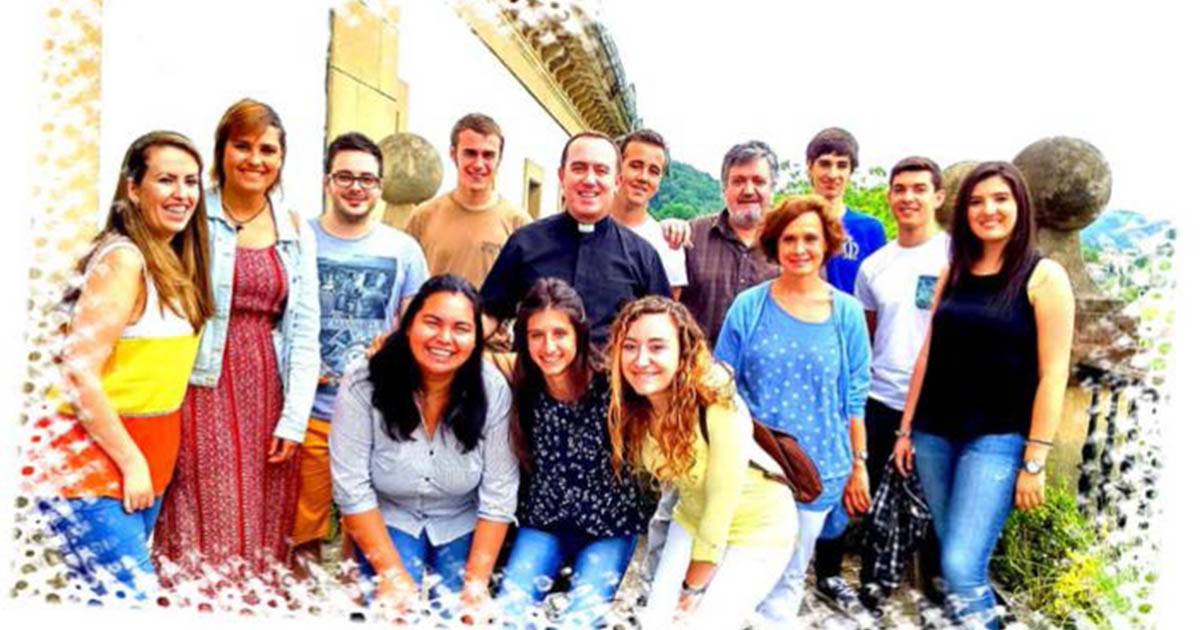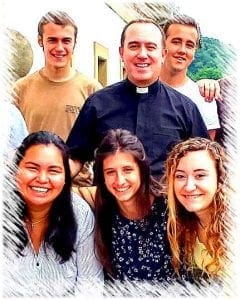In July, a group of 12 young people participated in the yearly labor camp organized by the Prison Ministry Chaplaincy in Martutene Prison (San Sebastian, Spain), in collaboration with Spanish Penitentiary Institution.
The young people reflected on the experience:
During these last days I have been enjoying a pleasant experience of mercy. I did not know what I would find upon arrival at Martutene Penitentiary, and I was conditioned by the prejudices and stereotypes of society. In the movies, it is always shown that prisons are full of hostility. Even though the first time I felt paralyzed, with each passing day I realized that Martutene is a reflection of society: there are people from all over the world, different cultures, religions of all kinds …
I was given the opportunity to live an experience of mercy in prison, working the following values: forgiveness, support, acceptance, listening, gaze and service. These issues are important because they have helped me to reflect on my daily life.
Forgiveness is a value of great importance for a person who has committed an offense, that is why the labor camp organizers thought it was an important issue to begin with. In a formation meeting prior to the camp a layman told us his personal experience of conversion. There were two phrases that hit me, “the only one who can forgive is God” and “sometimes the most difficult part is to forgive yourself.” I discovered that one of the main difficulties faced by prisoners is forgiving themselves, to begin a process of self-esteem and personal renewal, to recover the meaning of life.
The welcome was filed by a couple whose Christian commitment is the emergency reception of children at risk of exclusion. I was struck by their commitment and how they viewed their inability to have children as a door that gives way to help children who truly need. I discovered that God seeks men and women, no matter the situation where you are.
The value of support was directed by a Jesuit, dedicated to the reintegration of detainees, who need help to rebuild their lives in a society that often excludes them. We talked about the problems that refugees are currently living in Europe and the lack of support experienced by prisoners for succeeding in their incorporation into society.
Regarding the gaze, led by a psychiatrist, we received different guidelines for learning to look beyond what we see, becoming aware of what we’re seeing, how we do it and how we feel about it. We were able to understand that the look is a reflection of the soul, and discovered that frequently we avoid to look us in the eyes in our conversations, to show what we feel or think. It helped us to see the prison and inmates from a new perspective.
The issue of values concluded with the service. It was given by a Daughter of Charity. She conveyed that, before volunteering at the prison, she had ministered only to the body as a nurse; when entering prison she learned that the service goes beyond a physical attention, it is the gift of self.
We have had the opportunity to receive a prison formation of the hand of professionals working in the center, and thus we have been able to discover more about the operation of prison. Among other things, the different treatment programs that are carried out in order to reintegrate inmates into society. In the words of these professionals we could see the passion and commitment to exercising their profession, and they were willing to learn more about other entities that collaborate to carry out their work.
The prison has raised many different emotions within me while thinking and reflecting, which initially were difficult to identify. Upon entering for the first time, I found a cold and unwelcoming place. A feeling of insecurity came over me. It was the Eucharist celebrated by the chaplain, Father Luis Miguel Medina CM, the first day of our entrance, which generated a much more relaxed atmosphere, as it was the first time when we had the chance to break the ice giving us peace and chatting later.
Over the days, we found that, thanks to the welcome that inmates gave us, confidence increased, as we could see that, despite the places where they come from, age, culture, difficulties they have crossed … they are people like us who deserve the same respect and a second chance. Although I must admit that all was not as easy as it seems. We feared that our conversations could open wounds that we could not close, and how to respect their silences and their desire to speak —or not— with us.









0 Comments